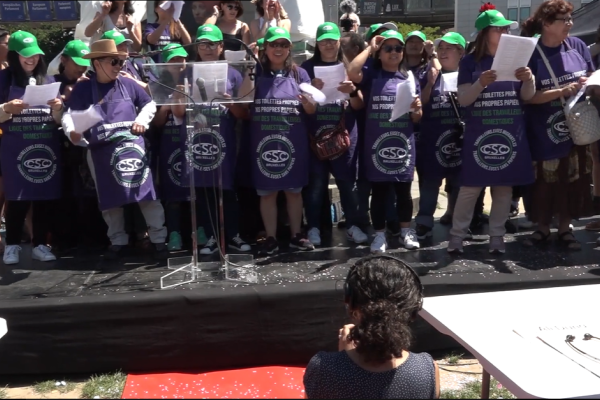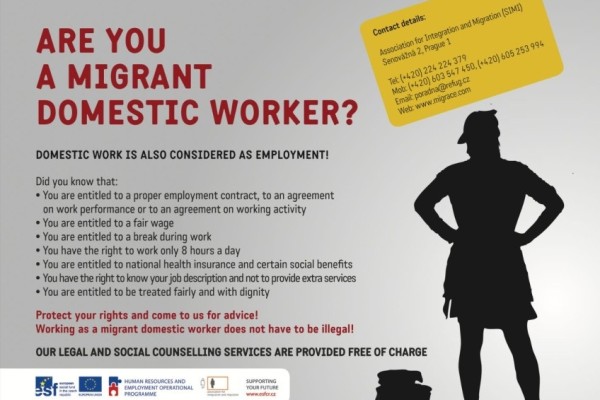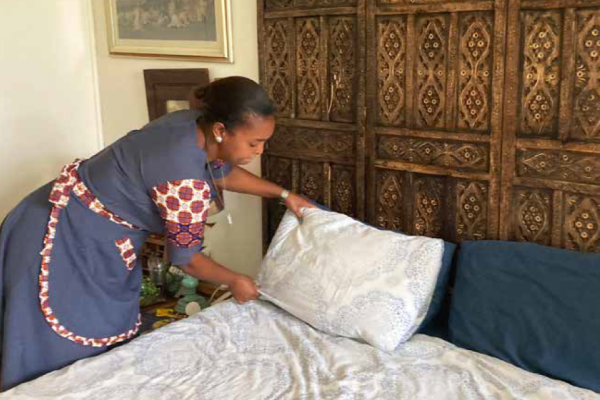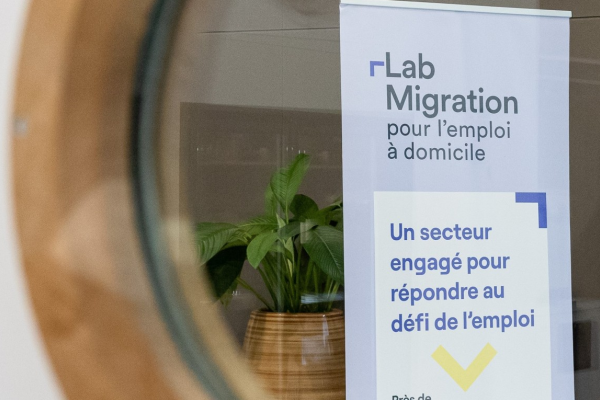Featured practices: Migrant domestic workers as agents of change
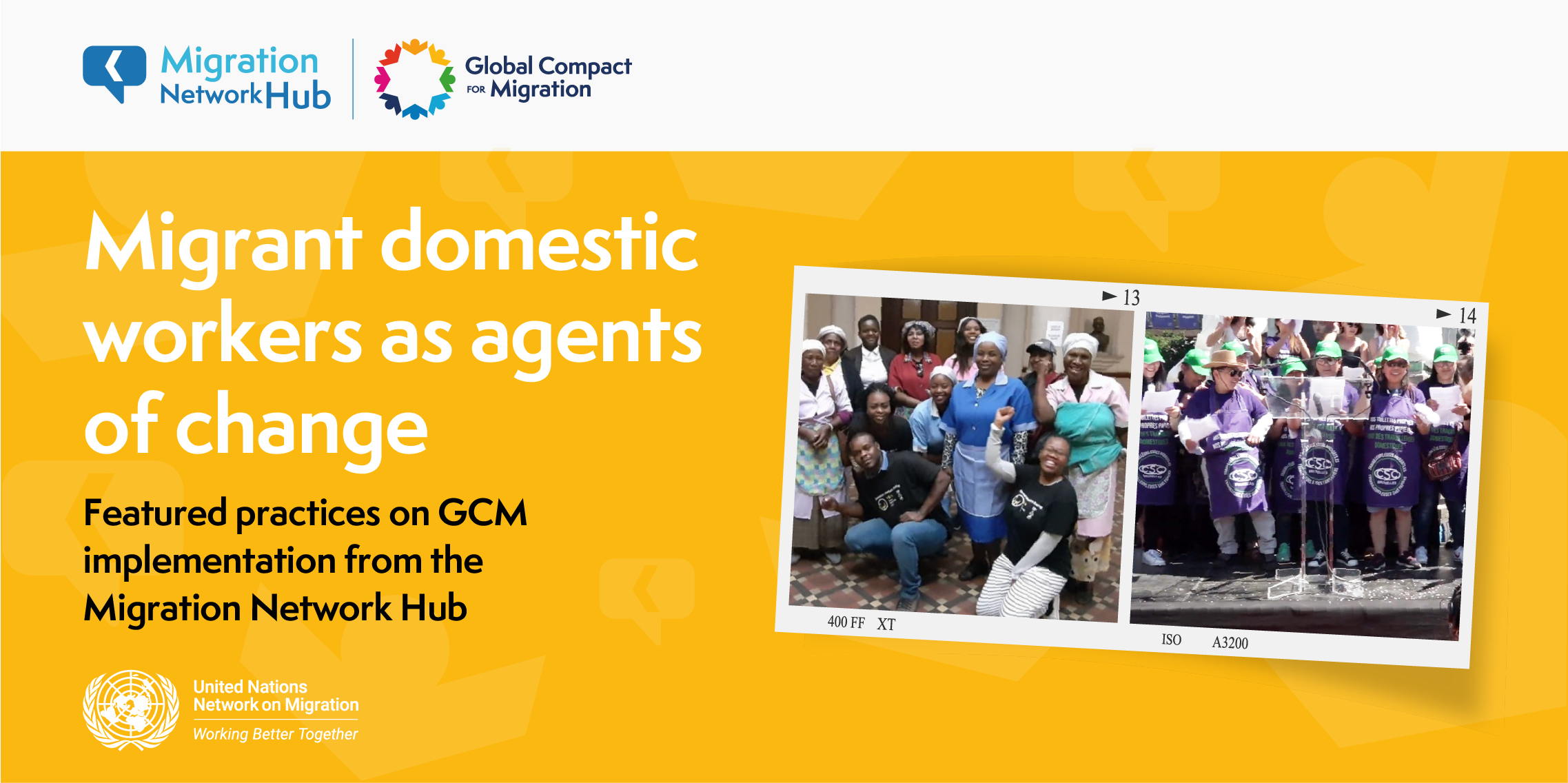
Ahead of this year’s International Domestic Workers Day on 16 June, the Migration Network Hub in coordination with ILO launched a Call for Practices to encourage submissions of initiatives and policies that help to transform how migrant domestic workers are valued and seen by the rest of society. The practices listed here were collected as part of this Call for Practices and underwent a peer review process by migration experts, and are now being published for the celebration of International Domestic Workers Day.
Domestic Workers League of ACV-CSC Brussels
Implemented by Confederation of Christian Trade Unions
Outcome of the practice:
Active campaigning generated awareness on migrant domestic workers’ issues and rights; while safe spaces helped workers to learn their rights and equip themselves with tools and skills to advocate for these rights.
Migrant Domestic Workers Rights in Czech Households
One Wage Campaign in South Africa
Implemented by a coalition of worker rights organizations, unions, and CSOs
Outcome of the practice:
An advocacy campaign changed the National Minimum Wage Act to include domestic work, taking an important step toward closing the migrant pay gap.
Research on human rights violations against live-in domestic workers and Code of Good Practice
Campaign and litigation for inclusion in the Compensation for Occupational Injuries and Diseases Act
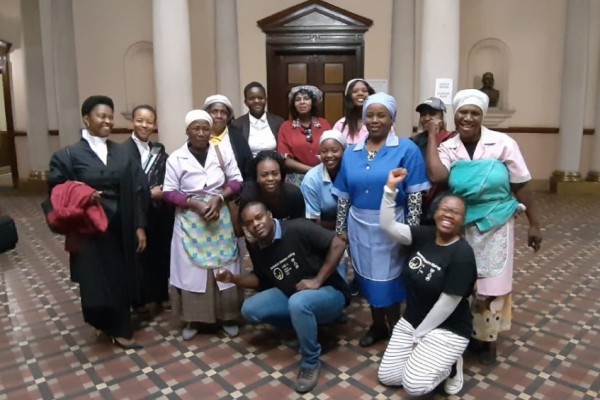
Implemented by unions, migrant workers’ associations, NGOs, and public interest lawyers in South Africa
Outcome of the practice:
The national Occupational Injury and Illness Act was adapted to include domestic workers, exemplifying how collective action through research, advocacy, and grassroots organizing can address systemic discrimination.
Engaging United Nations Treaty Bodies on Worker Rights
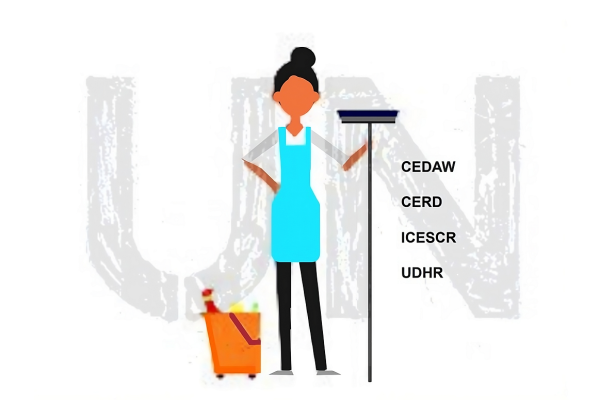
Implemented by Solidarity Center and a coalition of unions, worker rights associations and public interest lawyers
Outcome of the practice:
Coalitions from multiple countries submitted reports to the UN Treaty Bodies, placing issues in domestic worker rights on the international human rights agenda, compelling the countries to take action.
Migration Lab for the domestic and home care sector
Repository of Practices
Explore the practices of others implementing the Global Compact for Migration (GCM) and submit your own practice.
Enter >>
About the Migration Network Hub
What is the Migration Network Hub?
The Hub is a virtual “meeting space” where governments, stakeholders and experts can access and share migration-related information and services. It provides curated content, analysis and information on a variety of topics.
The Hub aims to support UN Member States in the implementation, follow-up and review of the Global Compact for Migration by serving as a repository of existing evidence, practices and initiatives, and facilitating access to knowledge sharing via online discussions, an expert database and demand-driven, tailor-made solutions (launching in 2021).
Submit your content
What content is displayed in the Hub?
The Hub aims to help you find information on migration, ranging from policy briefs and journal articles, existing portals and platforms and what they offer, to infographics and videos. The different types of resources submitted by users undergo peer review by a panel of experts from within the UN and beyond, before being approved for inclusion in the Hub. To provide guidance to users based on findings of the needs assessment, the content is ordered so that more comprehensive and global resources are shown before more specific and regional ones. Know a great resource? Please submit using the links above and your suggestion will be reviewed. Please see the draft criteria for existing practices here.
Apply to join the Peer Review Roster
Content submitted to the Migration Network Hub is first peer reviewed by experts in the field from both the UN and beyond. Applications are welcomed to join the roster on an ongoing basis. Learn more here.
Contact us
We welcome your feedback and suggestions, please contact us
*References to Kosovo shall be understood to be in the context of United Nations Security Council resolution 1244 (1999).
Newsletter
Subscribe to our newsletter.
